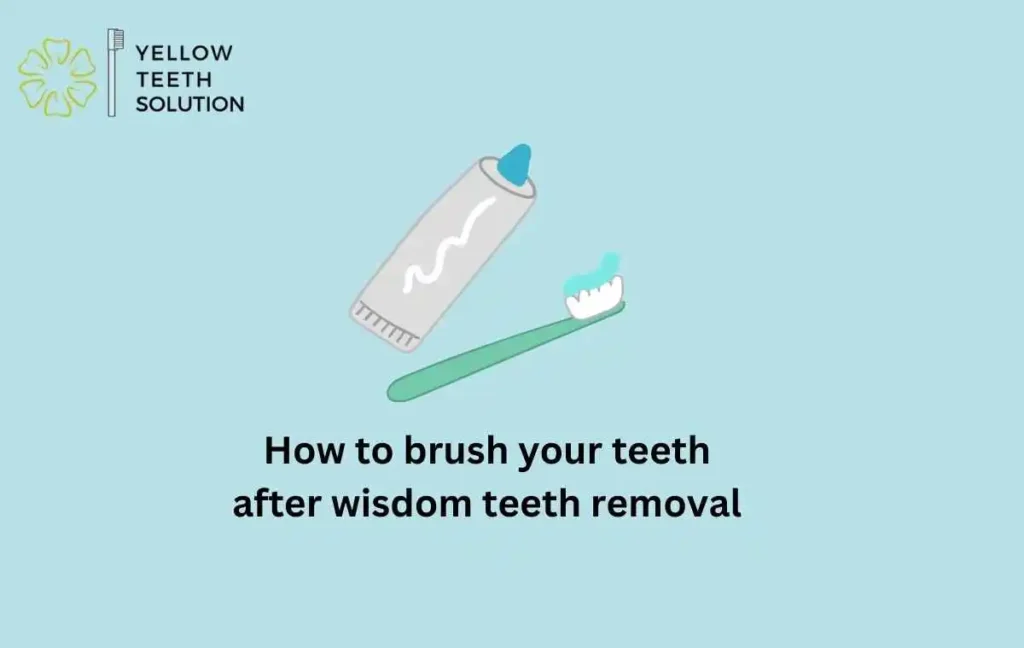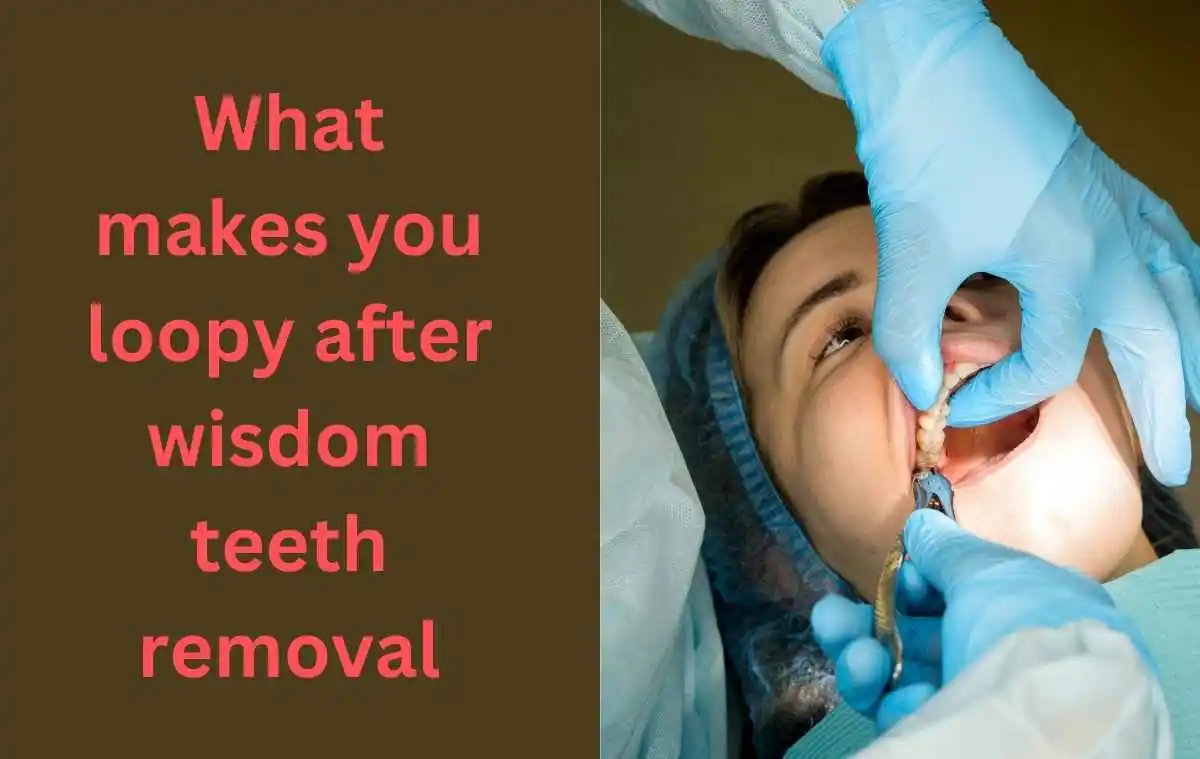There are a few common reasons why people feel loopy after wisdom teeth removal.
The local anesthesia administered to numb the mouth during the procedure can linger in the system for several hours, leaving one with a heavy, dizzying sensation. If general anesthesia was used, coming out of its effects on the brain can also cause loopy feelings that may last into the afternoon.
In addition, prescription pain medications containing opioids are often prescribed afterward and these can induce drowsiness, confusion and other cognitive changes. Swelling and bleeding from the extraction sites may subtly impact oxygen levels and nerve function temporarily as well.
However, feeling loopy after wisdom teeth removal is usually quite normal as part of the body’s recovery process. With adequate rest and following post-op care instructions, the effects will reliably subside within 1-2 days.
Table of Contents
- Why they’re called wisdom tooth
- Why people act loopy after wisdom teeth removal?
- How to Brush your teeth after wisdom teeth removal
- Why people get loopy after anesthesia?
- 4h of anesthesia
Why they’re called wisdom tooth
Wisdom teeth are called that because many ancient cultures believed that the third molars, which typically erupt during adolescence/young adulthood, coincided with the age of attainment of wisdom and adulthood. Third molars were one of the last teeth to emerge, often between ages 17-25 when people were considered becoming wise, independent adults.
Ancient Greeks associated wisdom teeth with maturity and the ability to exercise sound judgment as opposed to erratic behavior expected of youths. Many early civilizations performed ceremonial extractions of wisdom teeth as a rite of passage into adulthood. Even today some languages refer to them as “teeth of wisdom” suggesting the belief that they emerged as signs of wisdom and maturity.
Why people act loopy after wisdom teeth removal?
Many experts now say not to remove wisdom teeth. Here are a few key reasons why people may act loopy after wisdom teeth removal. Both local anesthesia (numbness injections) and general anesthesia (if used) can linger in the system and disrupt normal brain/neurological functioning for a period after the surgery. This often causes drowsiness, confusion, and uncoordinated movements.
Strong prescription painkillers commonly prescribed like acetaminophen/codeine or oxycodone are opioid drugs that frequently list dizziness, drowsiness, mood changes as common side effects. They interact with brain chemistry. Inflammation and swelling at the surgical sites can put subtle pressure on nearby nerves and blood vessels, altering mood, coordination and perception in minor ways.
Internal bleeding or blood accumulating in the extraction sockets decreases oxygen delivery to tissues temporarily, which can result in loopy/fuzzy thinking. Under the combined effects above, some forget or are unable to eat/drink well after surgery, causing blood sugar drops that exacerbate other loopy symptoms.
How to Brush your teeth after wisdom teeth removal

For the first 24 hours, avoid brushing the extraction sites. Gently rinse your mouth with warm salt water to keep it clean. Our below guide outlines a gentle toothbrushing technique to follow in the first few weeks of recovery.
Day 1
On the first day, gently brush all surfaces of your front teeth using a soft bristled brush and your non-dominant hand. Angle the brush towards rear teeth and brush the edges near extraction sites but do not insert the brush into the holes. Rinse thoroughly with salt water afterwards. Take any prescribed pain medication.
Days 2-7
Continue gentle brushing of all teeth except direct insertion into surgical sites. Use short, feather-light back-and-forth strokes with an extra soft brush. Rinse with salt water after every meal. You can also use chilled teaspoons to swish and remove food debris from socket areas. Avoid mouthwash.
Weeks 2-4
Gradually increase brushing and cleaning extraction sites as they heal, approved by your dentist. Slowly insert the brush bristles beside the holes using gentle pressure. Attempt brief, circular motions around the edges. Flossing can resume once sutures dissolve if approved. Use prescribed antimicrobial rinses in addition to salt water.
Months 2-6
By 4-6 weeks, you can brush surgical sites like normal teeth while avoiding excessive scrubbing forces. Flossing should become a regular part of care if sockets have closed. Monitor healing closely as poor hygiene could impact recovery. Consult your dentist until gums are fully repaired.
Why people get loopy after anesthesia?
The most common reason individuals report feeling loopy or out of sorts after undergoing general anesthesia is that the anesthetic drugs used are powerful central nervous system depressants. During surgery, these medications like propofol and volatile gases work to safely induce unconsciousness and suppress brain activity.
However, as the anesthesia wears off and a person begins to regain wakefulness, it takes some time for their brain and neurological processes to fully restart and return to normal functioning. This is because the anesthetic continues to vaporize slowly out of fat stores hours after a procedure.
As a result, higher functions come back online gradually in stages rather than immediately. Combined with disrupted sleep-wake cycles from being induced unconscious, this period of adjustment as the brain recalibrates can understandably cause a disoriented, loopy feeling that typically fades fully within a few hours as the individual rests and their body processes out the last of the anesthetic agents.
4h of anesthesia
Undergoing general anesthesia for 4 hours indicates a major surgical procedure was performed, with extensive metabolic, physiological and neurological impacts on the body. Such lengthy anesthesia causes significant decreases in breathing rate, oxygen consumption and blood flow redistribution, placing additional stress on major organ systems.
Full muscle relaxation through long-acting paralytic drugs is required and takes over an hour to fully wear off after anesthesia ends. Emergence from unconsciousness to a stable level of awareness suitable for extubation takes 20-30 minutes as anesthetists meticulously reverse the drug effects. Patients are then closely monitored for at least 2 hours in the post-anesthesia care unit as vitals, pain levels, nausea and cognition are assessed.
Neurological recovery from such a prolonged period under general anesthesia can cause temporary confusion, forgetfulness and mental fogginess for up to a day. Aggressive post-op pain management is also necessary to address the aftermath of a major 4 hour surgical trauma experienced under anesthesia. Most patients require overnight hospital admission to ensure stability before discharge.

